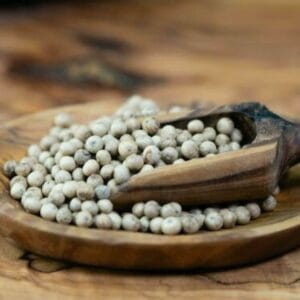What To Ask A Farmer

- How to Purchase Farm Fresh Eggs -
Buying local is best – we’ve all heard this before, but sometimes it seems like too much work. We are so used to going to a grocery store and picking up everything we need for the week in one location. Even though this is all we know, it is a fairly new way of providing food for ourselves and our families. Modern-day grocery stores were not a thing until 1916, when Piggly Wiggly was opened in Memphis, TN. Unfortunately with modernization, it does not always equal health.
We have lost touch with where our food comes from and how it is grown. The What To Ask A Farmer series will help to educate our communities on what to ask your farmer about their growing practices, living conditions, and more.
We’re gonna kick off this series by learning how to shop for eggs. Farm fresh eggs are superior to any eggs you can find in the store. They are richer in color and freshness, with an increased yolk density and shell thickness. Farm fresh eggs have less cholesterol and saturated fat and also contain 25% more vitamin E, 75% more beta carotene and up to 20 times more Omega-3 fatty acids in comparison to commercially grown eggs.
1. Ask your farmer if their feed, treats and scraps are organic.
We always recommend to start with certified organic as a base line for all food purchases. If you do not have access to a farmer or a homestead selling their backyard prized dozens, always choose organic at your local grocer. Organic avoids a lot of poor choices by the farmer, such as GMO-grains, low grade and/or old feed, pesticides, herbicides, medications, and more. A local farm or homestead may not be certified organic, but still follows or goes above organic standards – this is where you want to shop.
Be sure to ask about any treats or scraps offered to the chickens, as well as, if they have access to other animals on the farm. Chickens will naturally scratch and peck their way through anything and everything. This is a very beneficial instinct to regenerative farming. However, unless all the animals on the farm or homestead are fed an all-organic diet, the chicken would not be considered organically raised.
2. Ask your farmer how much sunlight and space each hen has each day
Next, look for pasture raised. Hens must have access to sunshine, grass, bugs and plenty of it. If hens (or any animal) do not have adequate space, this will cause an increase of parasites and viruses amongst the flock. It is not necessary to medicate animals that are on pasture or rotated regularly.
Our main laying flock has 8+ hours in our pasture, orchard, and woods. They are free to roam our property during the day. Our breeding flock has at least 80+ sq ft of space per bird and is rotated weekly. If flocks have less space than this, they need to be rotated more often. This allows the ground to recover and the parasite load to reduce. Unfortunately, many commercial farmers do not give adequate space because of the size of their flocks.
3. Ask your farmer if the feed contains soy
Next on our list is Soy-Free. Soy has little to no benefits to animals or humans. In many feeds, it is one of the main ingredients, but does not satiate the animal. In turn, they are left in a constant state of hunger. Soy also spikes estrogen in the body which can cause disease and obesity and end up in your food. Many studies show that Americans are estrogen dominant – not a healthy state to be in. To keep your hormones in check, opt for hens with a soy-free diet.
We have had several customers, for our feed and our eggs, tell us they are not able to eat other eggs, but have no issues with eggs raised on New Country Organics feed. It is one of the highest quality feeds you can find. Not only is the feed organic and soy free, but there is no soy in any of their mills, so there is no chance of cross contamination. If you have a sensitivity to eggs, give eggs raised on New Country Organics a try and see if your issues are gone. Eggs have so many healing benefits and there are no real substitutes!
4. Ask your farmer if the eggs are washed
Eggs should be relatively clean when collected from the nesting box. No one wants to see an egg carton full of messy eggs! This could mean the living conditions are not clean or adequate or the hens are sick. If we end up with a messy egg, it never go to a customer.
When eggs are washed, they lose their bloom, a protective coating that does not allow anything in or out. Washing off the bloom leaves the egg susceptible to bacterial growth inside the shell. Eggs are safest to eat with the bloom left on until they are ready to be consumed. All you need is some luke warm water and your hand to wash off the bloom before you enjoy.
5. Ask your farmer how often eggs are collected
Eggs should be collected daily. We check nesting boxes at least 3x a day to ensure freshness and cleanliness. The longer the eggs stay in the nesting box, the more likely they are to get dirty or broken. Any broken eggs go straight into a pot to be boiled as a treat for our pigs. If you find a cracked or broken farm fresh egg in your dozen, always discard it (they are great for the garden or compost).
Unwashed, farm fresh eggs are perfect on your countertop for up to 4 weeks and up to 4 months in your fridge – I think they are too beautiful to be hidden in the fridge! They always have a cozy spot on our counter.
If you have any questions that we can help answer, please feel free to contact us anytime using the form below!



